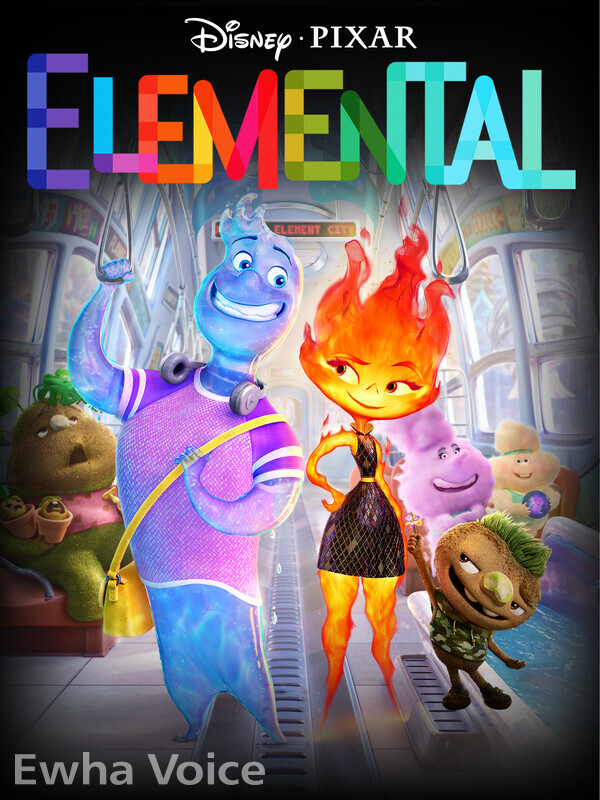
“Elemental” is an animated Pixar movie that was released in July of this year. The movie is set in a world where four different elements, namely fire, water, land, and air, live together in Element City. Although “Elemental” is a love story between two different elements, the main character Ember’s experience as a second-generation immigrant is worth noting.
“Elemental” begins with Ember’s parents immigrating to Elemental City. From the outset, they face discrimination when a clerk anglicizes their names to Bernie and Cinder Lumen after he has difficulty pronouncing their original names. The couple later set up a Blue Flame, which is a symbol of tradition and heritage, and started a convenience store called The Fireplace.
Flash-forward to the point where Ember is grown up and miserable. Ember’s father tells that her she will run the store when she is responsible enough. Then, Ember meets Wade, and as they search for the source of a leak that may endanger the city, their relationship becomes more intimate. Meanwhile, Ember realizes that running the store is not what she truly wants, explaining why she has been so miserable.
“Elemental” touches on many themes including xenophobia. This comes as no surprise since the movie was directed by Peter Sohn, a second- generation Korean-American director. Sohn mentioned that the plot was inspired by his childhood in New York, hence the nod to Korean words such as ashfa, based on the Korean word appa, meaning father.
The similarities do not stop there.
The fire element lives as a tight-knit community on the margins of society. People undermine those of the fire element by calling them “sparky” or publicly demanding them to stay away. Although Ember’s parents have given up everything in their former home to make a better life, the society in Element City does not welcome them properly.
This is why Ember feels forever indebted to her parent’s sacrifices. She prioritizes bringing honor to her family and being an exemplary daughter by neglecting her ambitions. Especially when her father becomes sick, Ember is determined to make her father proud and become the next owner of the convenience store. She goes to great lengths, risking her life to save the Blue Flame her father cherishes.
Extreme filial piety of second- generation immigrants is not an uncommon theme in literature. An effective example can be found in Maxine Hong Kingston’s “The Woman Warrior: Memoirs of a Girlhood Among Ghosts.” Kingston, a second-generation immigrant, tells the legend of Fa Mu Lan, a daughter with mythical powers who seeks revenge for her parents. Afterwards, she describes her ordinary life where she fails to stand up to racist comments made by her boss. With the legend being written in first-person narrative, and the two stories being told together, the implication cannot be missed. Kingston and Ember try to make themselves fit into what their parents envision as an ideal daughter.
“Elemental” is at heart a romance, but it also portrays how Ember slowly starts to gain her voice. Even though Ember is described as outgoing and short- tempered, she has difficulty opening up to others, especially her parents. While getting to know Wade, Ember discovers things she did not know about herself, for example, her knack for glass crafting or her ability to empathize. In the end, instead of inheriting The Fireplace, Ember decides to pursue her dreams of becoming an artist.
For those who have not yet seen “Elemental,” it is a must. The film will entice you not only with its heartwarming plot but also with its colorful animations of the swirling flames and the fluidity of the protagonists.

